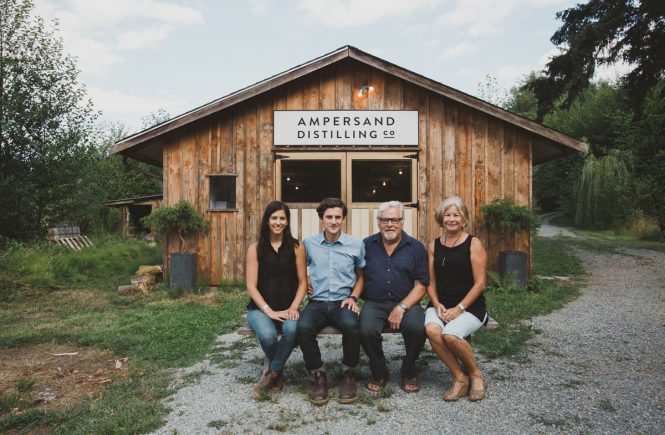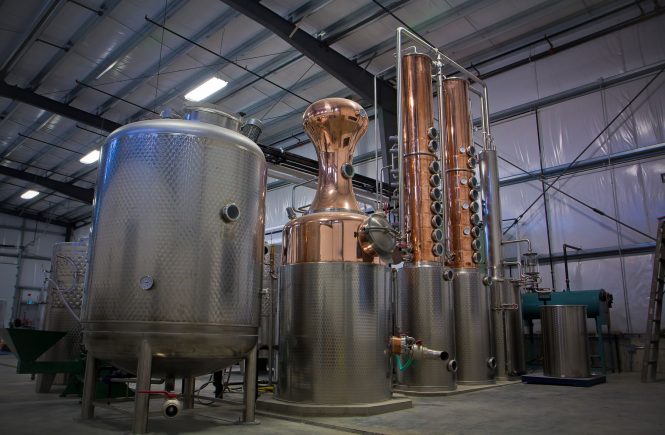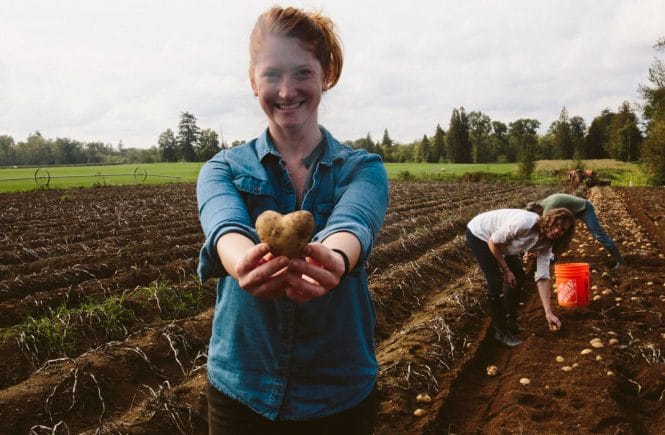Long Table, Vancouver’s original micro distillery, is fuelled by passion.
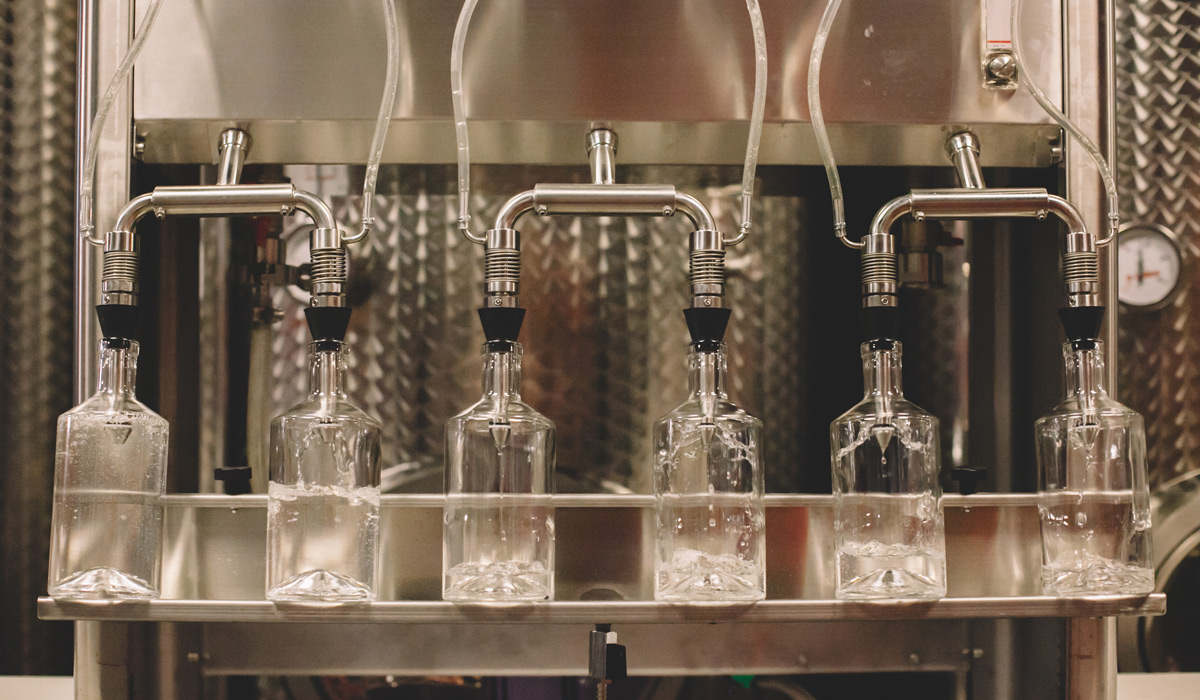
Charles Tremewen loves gin. So much so, he hocked his house to start making it himself. He launched Vancouver’s first micro distillery, Long Table, in February 2013, and hasn’t looked back.
Long Table’s first gin was the London Dry-style, and it remains the flagship product, aromatic and punctuated with the distinctive evergreen notes of juniper. Next came what was meant to be the seasonal Cucumber, with vegetables from Pender Harbour macerated and infused during the distilling process.
“That was intended as a summer fling,” says Tremewen. “It proved so popular, it’s earned a level of permanence.” It also won a gold medal at the 2015 World Spirits Competition (the London Dry took a silver).
The third of Long Table’s gins is the Bourbon Barrel Aged, a caramel-coloured, smooth-as-silk “whisky-man’s gin,” aged for three to four months in small barrels from Woodenville Whisky.
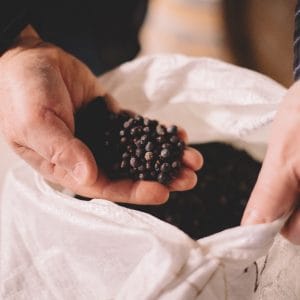
Lou Lou Childs photo.
After losing ground to vodka, gin—always popular with bartenders as a base for a classic cocktail—is enjoying something of a revival.
“I think it is back in favour,” agrees Tremewen. “It holds such character in its essential herbaceousness, and those floral, peppery notes really open up and bring complexity to a cocktail.”
Served in some of Vancouver’s top cocktail-forward rooms, Long Table’s product is prized by bartenders for its high quality, complexity, and consistency.
That consistency comes at a price—for Tremewen, at least: like most high-end gins, Long Table uses Neutral Grain Spirit (ethanol that has been distilled five times) as its base. It’s the same process used by Vancouver Island’s Victoria Gin, acclaimed U.S. small-batch Aviator Gin, and London’s first new hand-crafted gin in 200 years, Sipsmith. It’s also the method used by globally revered Hendrick’s.
We don’t use essential oils to flavour our gin; we macerate all our botanicals as part of the distillation. We are a small-batch, hand-crafted operation.
“We want people to recognize the quality of the product we are making,” he says. “We don’t use essential oils to flavour our gin; we macerate all our botanicals as part of the distillation. We are a small-batch, hand-crafted operation.”
But, in B.C., the moving target known as the province’s liquor laws, currently insists that the “craft” designation (and financial breaks that come with it) can only be applied to those making grain to bottle spirits—creating a base on site from B.C. grown grain, potatoes, or whatever else the distiller chooses to use. (Determined after the distillery licences were first granted, the designation has forced at least one small operator to literally pour barrels of hand-crafted rum down the drain to meet the regulations; another had to get rid of litres of lovingly-tended pear brandy.)
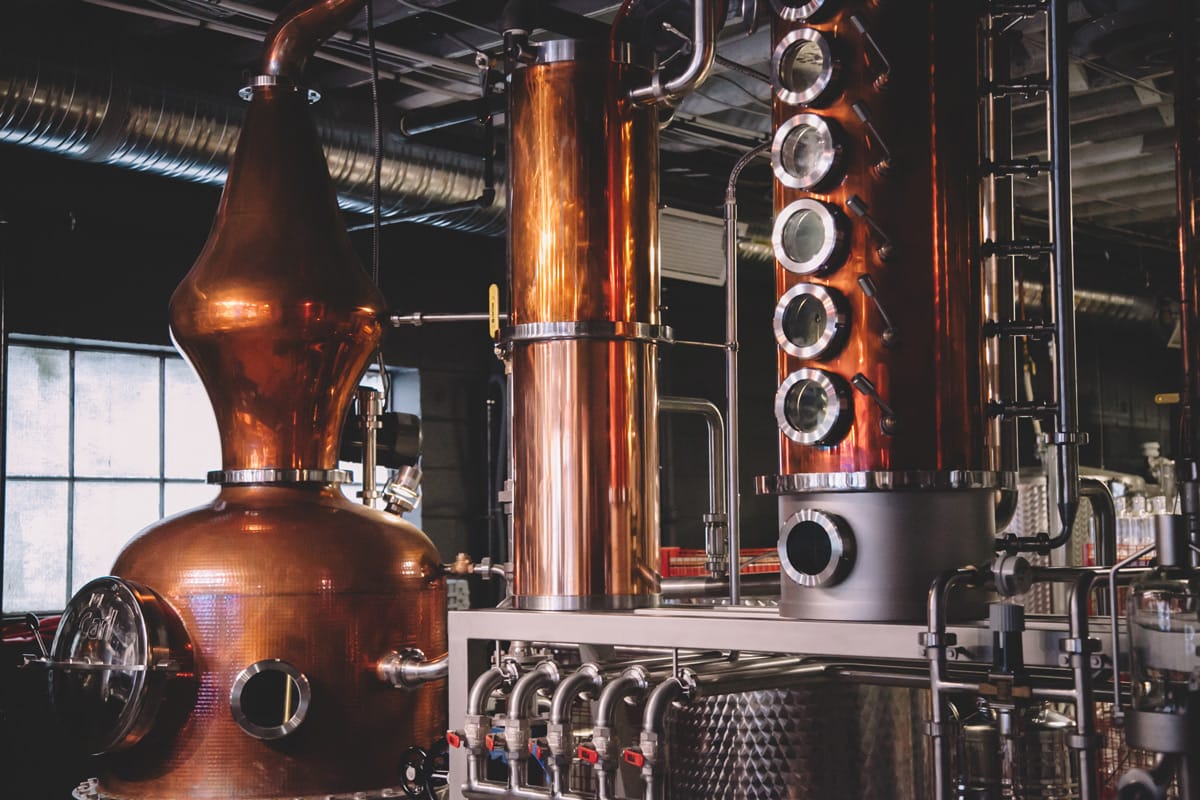
For Shaun Layton, one of Vancouver’s leading bartenders, and creator of the gin-forward cocktail program at recently opened Juniper restaurant, Long Table is one of B.C.’s best gins, and says the base alcohol is not a concern.
“I’ve toured craft gin distilleries in England and the U.S., and this distinction seems to be a uniquely B.C. approach, and one that doesn’t necessarily make for a better product,” he notes.
“What matters is what comes out of the bottle.”
Tremewen stands by his gin-making process, and remains hopeful that the regulations will eventually be tweaked.
“All of us distillers are at the forefront of a new industry in B.C.,” he says. “There is room for us all, and room to grow.
“We are all alchemists,” he smiles. “And we all share the same passion for our craft.”
DID YOU KNOW? Almost half of all the gin consumed in the world is drunk in the Philippines. Their Ginebra San Miguel brand accounts for 43 per cent of the global market, but is unknown outside of the country.
THE LAST WORD: “A perfect Martini should be made by filling a glass with gin then waving it in the general direction of Italy.” —Noël Coward
—by Fiona Morrow


